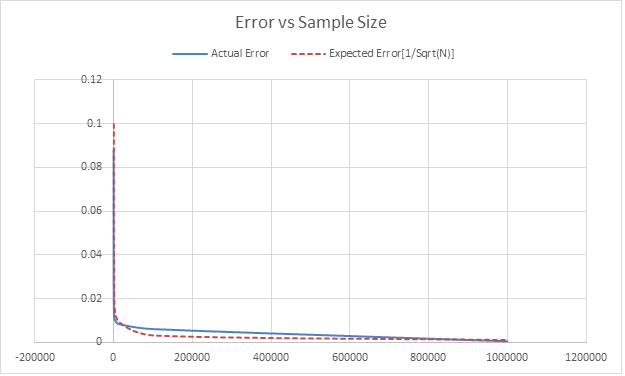Jervis Muindi
Numerical Algorithms and Complexity
February 2013
Homework 3
This project contains code that includes a monte carlo python evaluator. This is used to evaluate the following integral:
x^2*y + e^(-z) dxdyzdz where the limits of integration are:
x: 0 to 2 y: -1 to 1 z: 1 to 1.5
I evaluated this integral using Wolfram Alpha and I got a value of 0.862637
$ python montecarlo.py
For N = 100, Value is 0.756653. Error = 0.108012
For N = 1000, Value is 0.837359. Error = 0.027306
For N = 10000, Value is 0.868746. Error = 0.004081
For N = 100000, Value is 0.862611. Error = 0.002054
For N = 1000000, Value is 0.862637. Error = 0.002028
Looking at the results obtained, we see that as N increases, there is a general trend for the error to decrease.
The theory states that this reduction in error should vary according to 1 / Sqrt(N).
Using the collected data to make a plot of Error Vs # of Samples, We get a plot like this:
From the plot, we see that the rate at which the error decreases follows a 1 / Sqrt(N) trend.
Thus, the convergence to the right answer also proceeds like 1 / Sqrt(N)
